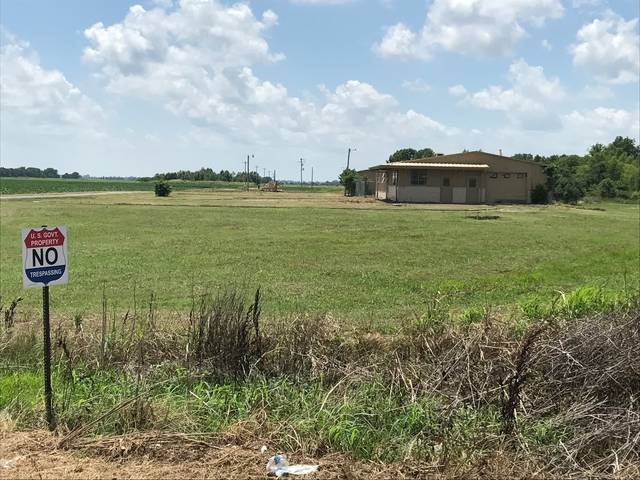Possible migrant site near former Japanese-American internment camp

MARK MCELROY VIA AP
Democratic state Rep. Mark McElroy showed the unused Department of Agriculture property the Trump administration is considering as a possible temporary shelter for unaccompanied alien children.
LITTLE ROCK, Ark. >> Nearly 75 years after federal officials shuttered a Japanese-American internment camp in Rowher, Arkansas, the Trump administration is examining a site about 2 miles away as a potential temporary shelter for immigrant children.
The Department of Health and Human Services said Thursday that the government is considering an unused Department of Agriculture property in nearby Kelso as an immigrant shelter, as well as a possible shelter at Little Rock Air Force Base.
Unlike at the base, the site in Kelso has very little infrastructure and would require tents for housing, said Democratic state Rep. Mark McElroy, who is “adamantly against” the proposal.
Among his concerns are the heat, humidity, mosquitoes and cottonmouths that he said would threaten anyone who lived in a tent.
“There’s no infrastructure, there’s no sewer, there’s no water to it, there’s no gravel,” said McElroy, who lives directly across from the federal site. He added that the land is prone to flooding.
Just heard that they are considering a detainment center for immigrant children just two miles from where I spent my childhood behind barbed wire in a camp in Rohwer, Arkansas. I have no words. https://t.co/8nwNMeHc7k
Don't miss out on what's happening!
Stay in touch with breaking news, as it happens, conveniently in your email inbox. It's FREE!
By clicking to sign up, you agree to Star-Advertiser's and Google's Terms of Service Opens in a new tab and Privacy Policy Opens in a new tab. This form is protected by reCAPTCHA.— George Takei (@GeorgeTakei) June 22, 2018
McElroy also worries about history repeating itself.
“We brought 9,000 people here because they didn’t look like us. Are we not doing the same thing?” he asked.
Actor George Takei, who lived at Rowher, tweeted about the proposed shelter late Thursday, saying he had “no words.”
Walter Imahara was 5 when his family was interned at Rowher. Imahara said that although the government used the terms “relocation” or “internment,” the Americans in those camps were actually in prison.
“They still had barbed wire, machine guns. You can’t go anywhere. You’re incarcerated; I don’t care how you put it,” Imahara said.
In spite of that, Imahara, now 81, said one thing the government did well at the time was keeping families together, so children felt safe.
“No matter where you are, if you have your parents, that’s your home,” he said.
The internment camp at Rowher opened in the fall of 1942 and closed three years later, said Susan Gallion, curator at the WWII Japanese-American Internment Museum in nearby McGehee. Rowher had hundreds of barracks divided into blocks, each of which had a mess hall, a laundry facility, a latrine, and housing for families. Twenty feet wide and 120 feet long, each barrack housed four to six families.
“The camps were self-sustaining. They raised their own vegetables, they had their own livestock,” Gallion said. The 17,000 prisoners in Rowher and Arkansas’ other internment camp, Jerome, also had police forces and schools.
At the time, Rowher was home to so many people that it was the sixth-largest city in Arkansas. Now, residents estimate it has 500 or so people.
Debbie Baty has worked at Granny’s Store, a small corner store with the town’s only gas pump, since it opened over 50 years ago. She said the town hopes that the immigrant shelter never comes to fruition.
“Our opinion is that the death row inmates are going to have better accommodations than these people will,” Baty said. “Everybody around here loves kids, you know, but this is something strange we’re all dealing with.”
Many of the state’s Republican officials are opposed to either possible shelter.
In a statement, Gov. Asa Hutchinson said he is opposed to any Arkansas shelter. Rep. French Hill — whose central Arkansas congressional district includes the Air Force base — said in a statement that children belong with their parents at the border.
U.S. Sen. Tom Cotton, who has supported many of the president’s immigration proposals, also opposed the idea.
In a statement, Rep. Rick Crawford, also Republican, acknowledged the significance of the site, which is in his district.
“Someone should have looked a little closer at the historical context of this site,” Crawford said. “It’s literally within sight of another internment camp dating back to 1942 involving Japanese-Americans. That proposal wasn’t a good idea either.”



